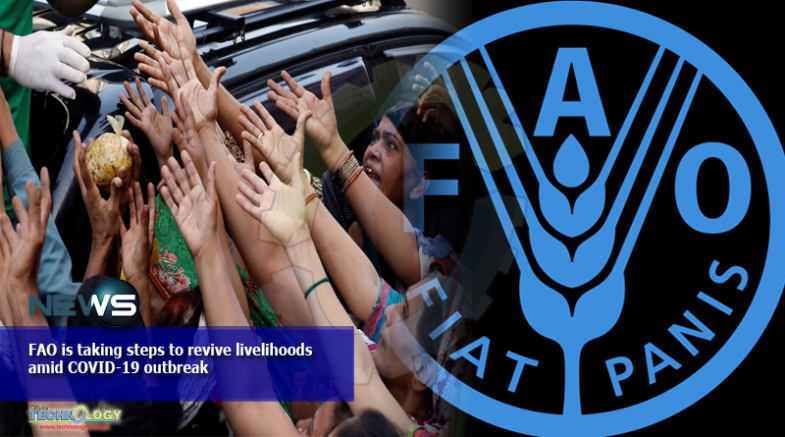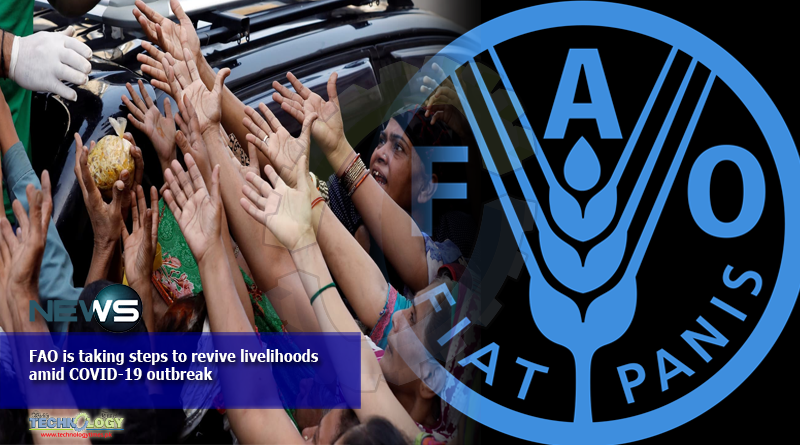The livelihoods of millions of family farmers in Pakistan have been affected by the spread of COVID-19, but action is underway to help them, as Food and Agriculture Organization of the United Nations (FAO) is taking radical steps to revive their livelihoods and food security in Sindh’s province of Pakistan

In rural parts of Sindh province livestock are an integral part of poor people’s livelihoods, contributing to household income, food security and nutrition.
In light of the current challenges faced by livestock farmers, a livestock farmer field school (LFFS) was set up in Umerkot district of Sindh province bringing together small-scale livestock producers.
These sessions have helped them strengthen their critical analysis, decision-making and communication skills while building on their own local knowledge. Ensuring physical distancing was mandatory throughout the sessions.
Animal compound feed was also distributed amongst the more than 1 400 of the most vulnerable households with each livestock farmer receiving 315kgs of animal compound feed to help them get through the crises they are currently facing.
Battling poverty, climate change and now COVID-19
Just south of Umerkot district lies the district of Tharparkar, an area with one of the highest incidences of poverty in Pakistan. FAO, with support from the World Bank, has supported distribution of drip irrigation and vegetable kits to help people get by in these difficult times.
FAO is working in close coordination with local governments to link its activities with various government initiatives to ensure better utilization of resources, avoid duplication and for sustainability purposes.
Twenty-five water schemes, which serve as small water storage tanks with in-built solar submersible water pumps, were constructed in 25 villages of Tharparkar district.
Water troughs for livestock and small drip irrigation systems for kitchen gardens were also established in these villages to support the smallholder farmers and reduce the impacts that COVID-19 restrictions pose to their livelihoods.
The construction work was completed under a cash-for-work programme, providing temporary employment to the most vulnerable and affected population in the district.
Opportunities to promote greater hygiene in the field to prevent the spread of the coronavirus
During these activities hands-on, participatory learning was also applied to demonstrate the best practices which would help these local communities protect themselves against COVID-19 infections.
The sessions and activities helped achieve the dual aim of empowering smallholder farmers as they build sustainable livelihoods and sensitizing local communities on various preventive measures such as hand washing, physical distancing and other health and hygiene practices that would help them stay safe in the wake of the COVID-19 outbreak.
In Pakistan, and across the Asia-Pacific region, FAO staff continue to work on the frontlines to help smallholder farmers secure their livelihoods while supplying food to their families and to the world.
